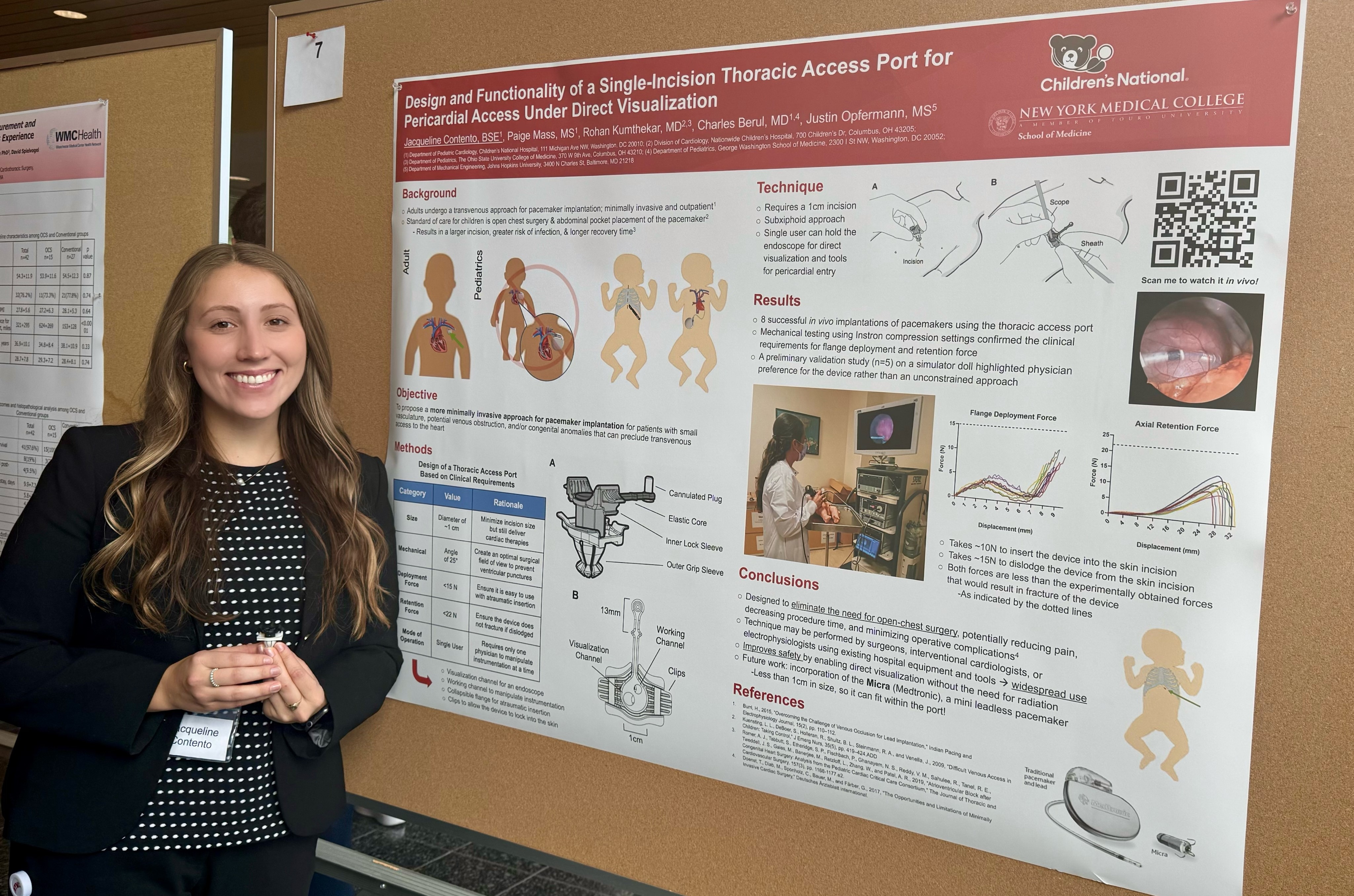
Medical Student Helps Pioneer New Tool for Pediatric Pacemaker Implantation
PeriPath Would Offer Less Invasive Alternative to Open Heart Surgery for Infants and Children

After just one year of medical school, Jacqueline Contento, SOM Class of 2027, is already making an impact on the field of pediatric cardiology with the development of a medical device that would allow for minimally invasive pacemaker implantation in infants. Contento, who holds an undergraduate biomedical engineering degree from Duke University, worked with a team at the Sheikh Zayed Institute for Pediatric Surgical Innovation at Children’s National Hospital in Washington, D.C., to create PeriPath, a single-use, low-cost pericardial access tool.
“Currently, neonates, infants, children, and even some adults with congenital heart disease cannot undergo the standard outpatient procedure to implant cardiac therapy leads for pacing, defibrillation, or cardiac resynchronization. This is due to their small blood vessels, venous obstructions, and congenital anomalies that prevent transvenous access to the heart,” says Contento. “The current approach has been for these patients to have pacing or defibrillator leads implanted via open chest surgery. PeriPath has the potential to offer an alternative – a smaller incision will have many benefits to patients, including a smaller scar, less risk of infection, and shorter hospital stay.”
Because the PeriPath procedure is compatible with common lead implantation tools, it can be readily adopted by interventional cardiologists and electrophysiologists, allowing for widespread implementation.
“Having the opportunity to utilize my engineering skills to help design this device and perform mechanical testing to determine whether it’s safe for use was inspiring,” says Contento. “We are now in the process of applying for a Small Business Innovation Research grant to start human clinical trials for PeriPath and working with Medtronic, who created the ‘Micra’ mini pacemaker, that will fit perfectly through our thoracic access port.”

